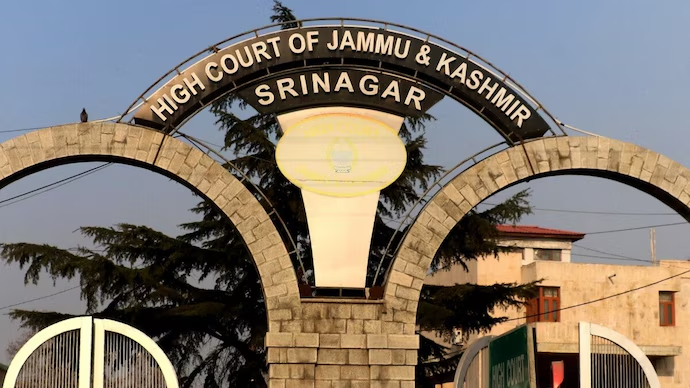Asif Iqbal Naik
Jammu, October 15, 2025:
The Jammu & Kashmir and Ladakh High Court has directed the authorities to maintain status quo on a piece of land in Kishtwar following a writ petition filed by Shahid Hussain against the Union Territory of Jammu and Kashmir and others. The order was issued on October 13, 2025, in WP(C) No. 2846/2025 titled Shahid Hussain Vs. UT of J&K & Ors.
The petitioner, represented by Advocate Faheem Shokat Butt, alleged that revenue authorities were attempting to evict him and other lawful occupants from land measuring 5 Kanals and 13 Marlas, falling under Khasra No. 2172 min, located in Revenue Village Kishtwar, Tehsil and District Kishtwar.
⸻
Background of the Dispute
According to the petition, the petitioner’s predecessors were in possession of the land since before 1934 AD (1991 Bikrami). Their possession was recorded as “Mafooz Muzaria Gala Batai” in revenue records. In revenue parlance, “Gala Batai” indicates a crop-sharing arrangement, and “Mafooz Muzaria” signifies a protected tenant under the old Jammu & Kashmir Tenancy Act, whose tenancy rights were heritable.
Following the repeal of the J&K Tenancy Act, 1980 and amendments made to the J&K Land Revenue Act, Svt. 1996 through S.O. 3808(E) dated 26.10.2020, such tenants are now recognized as occupants in authorized cultivation. The revenue authorities had accordingly updated records on 27 February 2023, acknowledging the petitioner’s predecessor, Mst. Maryam Begum D/o Ghulam, and other protected tenants as lawful occupants.
⸻
Temple Trust Seeks Restoration of Land
The Sh. Raghunath Ji Temple Trust, through its President, later filed a representation seeking the restoration of the land, claiming it was under illegal possession. Acting on the Trust’s request, the Financial Commissioner (Revenue) and Divisional Commissioner, Jammu, directed the formation of a committee of seven revenue officials led by the Tehsildar, Kishtwar, which submitted a report on 4 January 2024.
While the report confirmed the long-standing possession of the tenants, it allegedly omitted the term “occupants in authorized cultivation”, creating an impression that the tenants were in unauthorized occupation. Advocate Faheem Shokat Butt described this as a deliberate misrepresentation by the authorities.
Despite this, the Deputy Commissioner, Kishtwar, by order dated 21 May 2025, constituted another committee of five officials to demarcate the land and hand it over to the Temple Trust. The petitioner contended that revenue officials have no legal authority to evict lawful occupants, as the matter involves a dispute between private parties, not the government.
⸻
High Court Intervention
The High Court, while hearing the matter, directed the respondents to maintain status quo over the possession of the land, which effectively restrains any administrative action by the revenue authorities in favor of the Temple Trust.
Advocate Faheem Shokat Butt, in his communication to senior government and revenue officials — including the Secretary to Government (Revenue Department), Financial Commissioner (Revenue), Divisional Commissioner Jammu, and Deputy Commissioner Kishtwar — emphasized that the order must be implemented in letter and spirit, warning that any violation could invite contempt of court proceedings.
⸻
Legal and Administrative Implications
This case highlights the complexities following the repeal of the J&K Tenancy Act and the transition to the amended Land Revenue Act framework. Legal experts note that similar disputes across Jammu and Kashmir involve tenants whose heritable rights have now been recognized as authorized occupants, and administrative overreach could lead to legal challenges.
The High Court’s interim order is viewed as a significant measure to protect lawful occupancy while ensuring disputes between private parties are resolved through appropriate legal channels, rather than administrative interventions.

